Black History Month
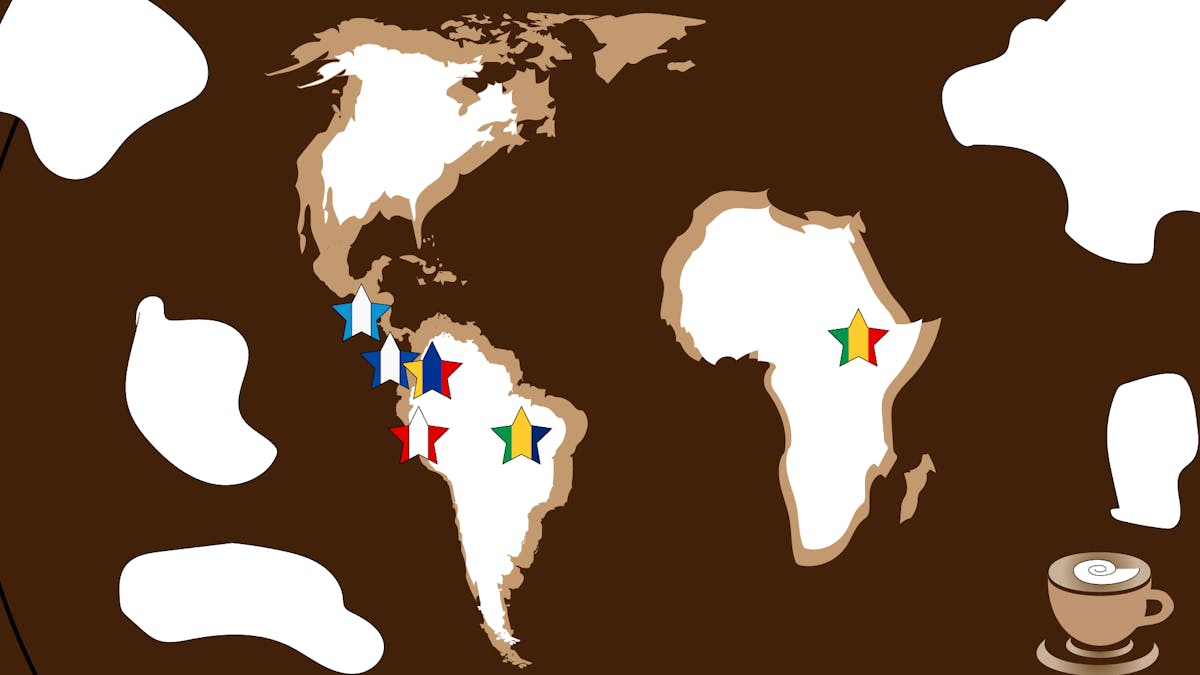
We cannot talk about the origins of coffee without talking about its roots and history. We have been posting about the fact that coffee is black history on Instagram in collaboration with student artists at our E.L.P. partner HBCU (Historically Black Colleges and Universities), Bowie State University. Read on for the full story.
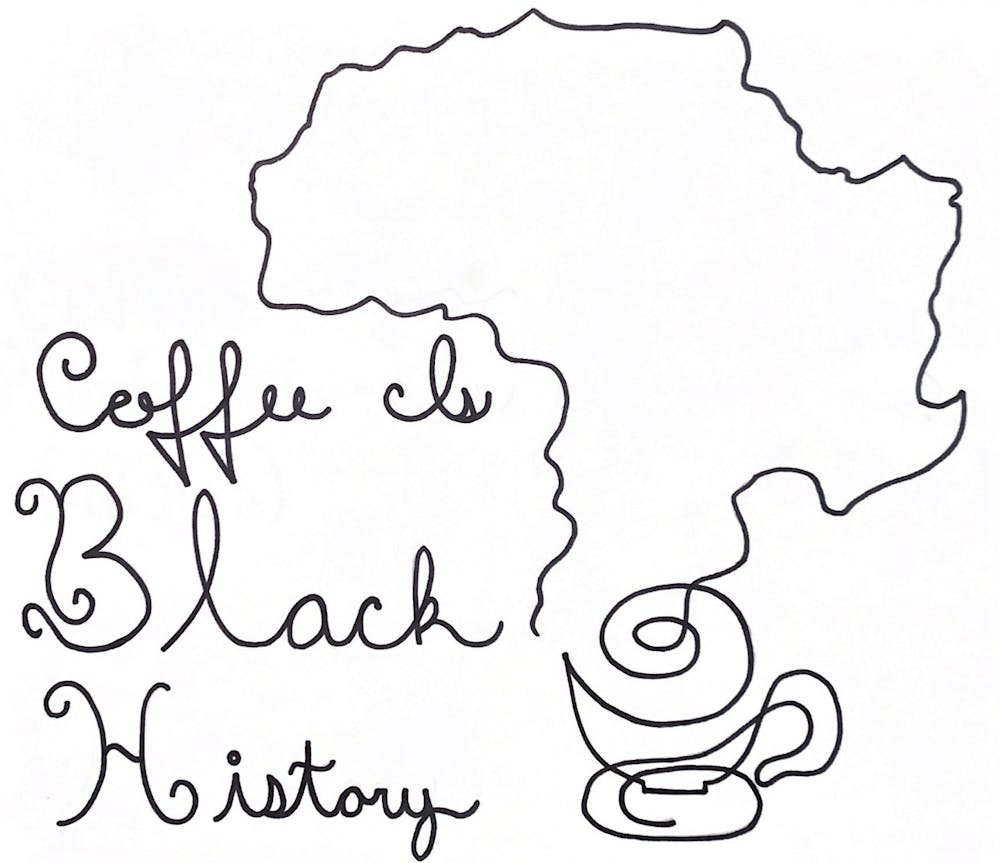
This illustration is by Bowie State University student artist and Visual Communication and Digital Media arts major, Mar'Reiyonna Froust.
Coffee is native to tropical Africa but today Brazil is the world’s largest coffee-producing country. Why Brazil? Coffee was traded across Asia and the Middle East before eventually being taken to the Americas. Unfortunately, the crop's success depended on the slave trade.
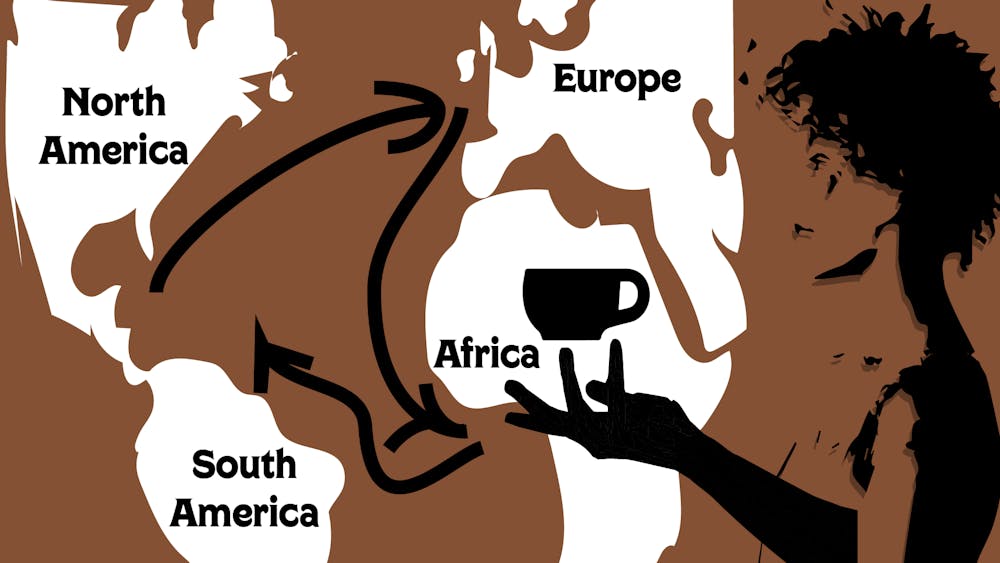
This illustration is by Bowie State University student artist and Visual Communication and Digital Media arts major, Chase Taliaferro.
In the late 1700s, the demand for coffee was so high in the Americas that slaves were taken from Africa to labor on sugar and coffee plantations through the Triangular Trade. By 1788, french-occupied Haiti was responsible for half of the world's coffee supply because of slave labor. The conditions that these overworked and tortured slaves endured by European rulers were inhumane. Eventually, Napoleon was unable to maintain Haiti as a French colony and the world's coffee production saw a shift to Latin America.
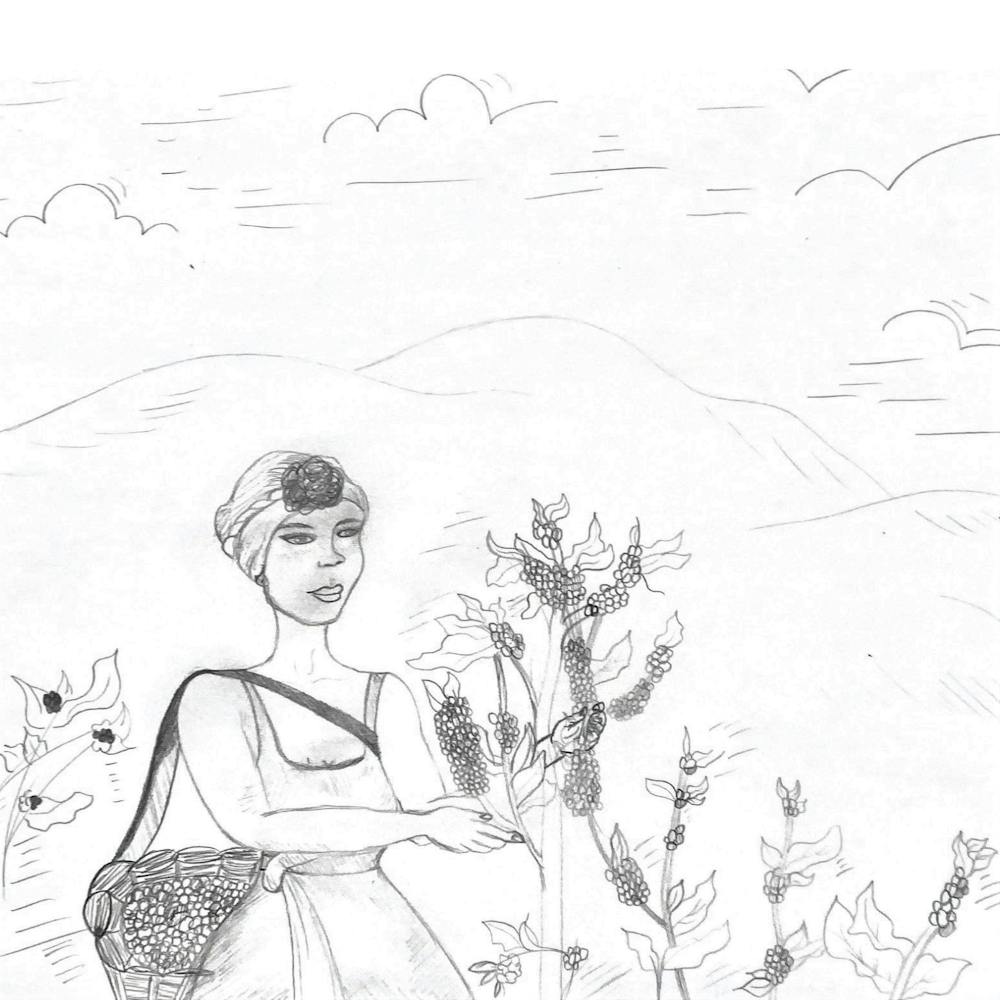
This illustration is by Bowie State University student artist and Visual Communication and Digital Media arts major, Mar'Reiyonna Froust.
By the 1830s, Brazil became the largest producer and exporter of coffee. Here, slave labor was used at a great human cost. Eventually, Brazil outlawed slavery in 1888 but by that point, about 4 million slaves had already been taken out of Africa through the Triangular Slave Trade.
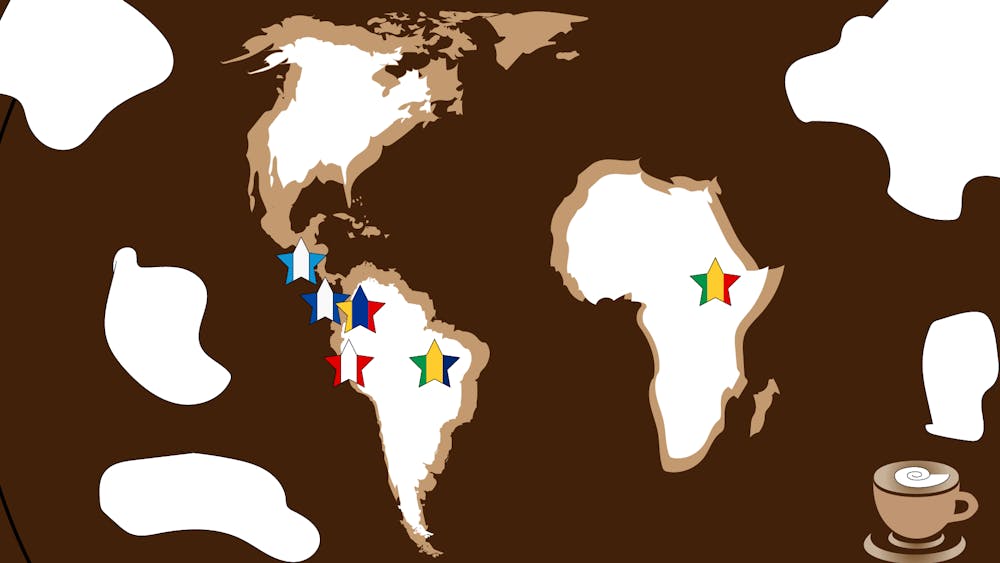
This illustration is by Bowie State University student artist and Visual Communication and Digital Media arts major, Chase Taliaferro.
Learning and understanding about how slavery built a foundation for today's coffee industry helps to explain why we want to acknowledge where it came from. Today, we hold our producers to high standards and personally visit origin where we hand select 100% of all the coffee that makes it into our single origins and blends. We purchase coffee only when there’s a mutually beneficial relationship rooted in respect. We believe that great coffee is a direct result of great relationships. We travel the world to nurture these friendships, make new connections, and find the best coffee from responsible sources.
Thank you to Chase and Mar'Reiyonna, the student artists, at our E.L.P. partner HBCU, Bowie State University, who collaborated with us to share the story of how coffee is black history.

